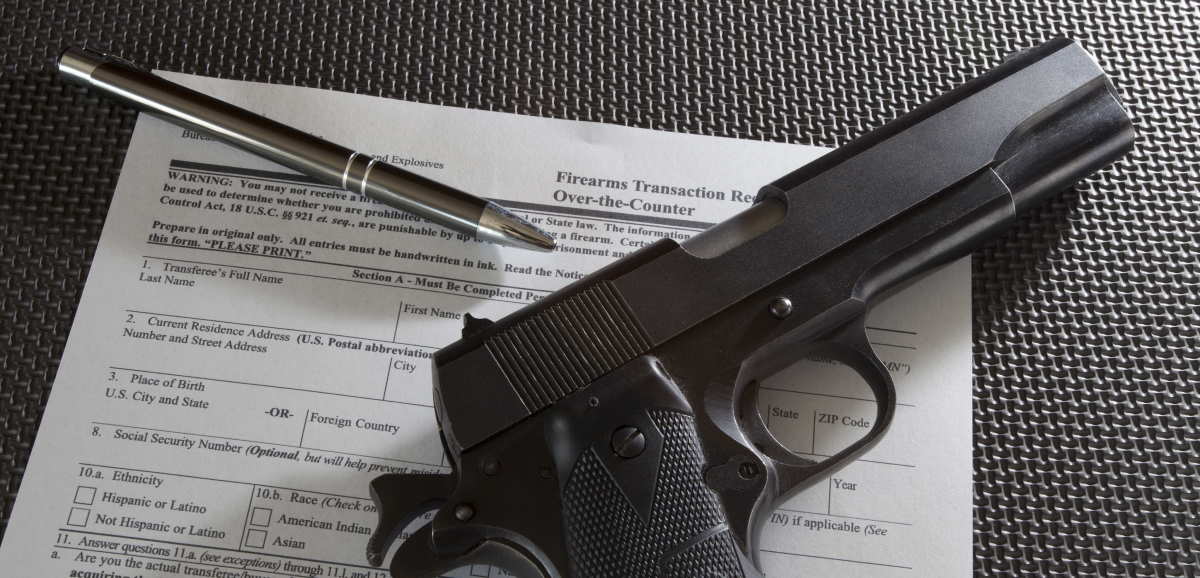A 2022 Guide to FFL Transfers: Why, When, & How to Conduct a Firearm Transfer

What is an FFL Transfer?
If you’re planning a gun purchase, it’s important to understand the ins and outs of what is required of you during the purchase process. Commonly, firearms are purchased on an online firearm website or through a private party sale. An FFL transfer is a rather simple process that shifts the possession from one FFL (Federal Firearm Licensee) to another FFL holder or customer. Once you get your first FFL transfer out of the way, any future purchases will be a breeze!
The Gun Control Act of 1968 enforces the need to complete an FFL Transfer with any purchases that travel state lines. This regulation includes any gift, sale, or loaned firearm occurring outside of state lines. In-state transactions follow individual state firearm laws, but do not always require an FFL transfer.
The firearms involved in the transaction must be logged in and out of the seller's possession and paperwork must be completed prior to leaving the licensed FFL dealer’s ownership.
When is an FFL Required?
If the gun is purchased out-of-state, from a Federal Firearm Licensee, or in a state that doesn’t allow private sales, an FFL transfer is necessary.
This includes online sales if you purchase from an FFL retailer. If the purchase is through an inline FFL retailer, the firearm will need to be shipped to a local FFL so that you can pick it up there and complete the FFL transfer.
If the purchase is completed online from a non-FFL individual in-state, an FFL transfer is not required under federal law.
You must seek out an FFL dealer to properly run a background check on you in addition to any other requirements of the state in which you are purchasing the gun. Most states follow federal regulations, allowing privately-owned firearms to be sold without the process of an FFL transfer.
All of these steps exist for the purpose of making sure that the right gun ends up in the hands of the right buyer. Additionally, measures like tracking the serial number are meant to keep the gun out of the hands of those who cannot own firearms legally due to age or criminal record.

How to Complete an FFL Transfer
Prior to the completion of your firearm purchase, you must provide a photo ID and fill out ATF Form 4473. This form is otherwise known as the Firearms Transaction Record. The FFL holder logs copies of these two documents in the event that they need to be shown to the Bureau of Alcohol, Tobacco, Firearms, and Explosives. After the form is completed, the licensee will then be able to run a personal background check through the federal system.
You will then receive one of three statuses on your application: approve, deny, or delay. If an FFL transfer is denied, you can request a firearm appeal. This only applies to denied transactions, not a delayed status. If you pass your background check and receive an approved status, you are then able to complete your firearm purchase. An authorization code is then stored with your paperwork.

Shipping Firearms Out of State
The federal government regulates and becomes involved in interstate sales of firearms. Specifically, the Bureau of Alcohol, Tobacco, Firearms, and Explosives (ATF) is the agency that oversees these affairs.
In the scenario that you want to send a firearm to someone in another state, it is required by federal law that you ship the firearm to an FFL close to them. The firearm must then be picked up at the location so they can complete an FFL transfer. This goes for any variety of reasons for shipment– sent as a gift, purchase, or because the firearm is being borrowed. Getting Your Own FFL Obtaining your FFL license from the ATF is a rather simple process. You must meet FFL license requirements, put in a couple hours of work to complete the process and pay around $200.
The Requirements Include:
- Being a U.S. Citizen
- Being at least 21 years of age
- Being legally allowed to own a firearm and ammunition
- Having a site for conducting FFL activities
- NOT having violated the Gun Control Act (GCA) regulations
- NOT having fabricated information on your FFL application
Once an FFL license is obtained, you can sell or make any NFA item so long as you register as a Special Occupational Taxpayer.

The Takeaway
Firearm purchases requiring an FFL transfer should not be daunting. The process is relatively fast and simple. In any firearm transaction, it is important to understand your state’s gun laws. The same goes for any interstate firearm transactions. To view each individual state’s gun laws, check out the Institute for Legislative Action’s Guide to the Interstate Transportation of Firearms.
So, there you have it! Now you can purchase a new firearm with the confidence that you are following the proper legal requirements. And while you’re at it, check out our variety of ammo and accessories to accompany that exciting new purchase.
More 2A News
The Defender’s Arsenal: Choosing the Perfect Shotgun for Self-Defense
Discover the key factors to consider when buying a shotgun for home defense, ensuring optimal safety and effectiveness in safeguarding your home and loved ones.
Read MoreChoosing the Best 9mm Target Ammo
Discover the key factors and considerations for choosing the best 9mm target ammunition to enhance your shooting experience and accuracy on the range. Unlock accuracy, affordability, and more.
Read MoreMeet 2023’s Newest Lever-Action Rifle: the Bond Arms LVRB
Discover the revolutionary Bond Arms LVRB, 2023's newest lever action rifle that combines classic appeal with adapatbility and modern innovations.
Read More